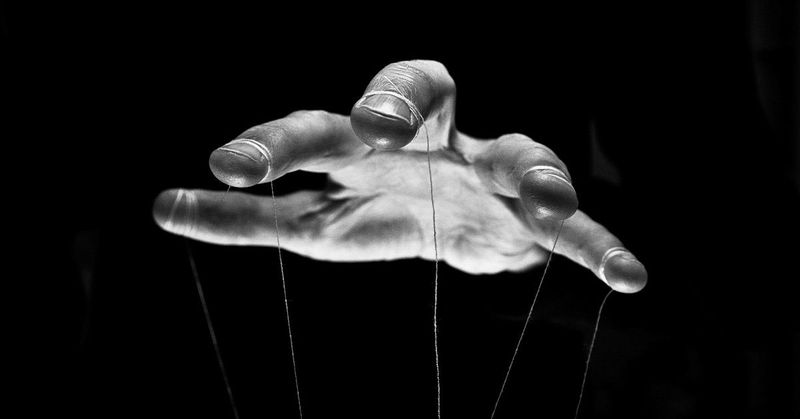17 Red Flags That Your Partner May Be Emotionally Dependent

Emotional dependency in relationships can be subtle and often mistaken for deep love and connection. However, it can lead to unhealthy patterns that may drain individuals emotionally. Recognizing these red flags can help maintain a balanced and supportive partnership.
1. They need constant reassurance, even after things are clear

Some individuals crave reassurance at every turn. Even after clear communication, they might frequently need validation about their worth or place in the relationship. This behavior can stem from insecurities or past experiences that make them doubt their standing.
While seeking comfort is normal, constant reassurance requests might hint at deeper emotional dependencies. The pattern can become exhausting for both partners, leading to tension.
Being aware of the need for constant validation can help couples address underlying issues. Open dialogues about these feelings foster understanding, enabling healthier relationship dynamics.
2. You feel guilty when you want time to yourself

Personal time is vital for emotional well-being. However, if every request for solitude is met with guilt, it might be a sign of emotional dependence. This guilt can arise from a partner’s subtle or overt disapproval.
Feeling guilty for needing space can strain a relationship. It might indicate that your partner relies heavily on you for emotional stability, making your independence feel like neglect.
Understanding the value of personal time and communicating this need can help. Encouraging individual growth within a relationship strengthens bonds, offering a healthier space for both partners.
3. Their mood depends entirely on how much attention they get

Attention is a basic human need, but when a partner’s mood shifts drastically based on the attention received, it may raise concerns. This dependency can lead to emotional turbulence, where happiness hinges on constant validation.
Such patterns often leave the other partner feeling pressured to meet emotional demands, fearing repercussions if unmet. This creates an unhealthy dynamic.
Balancing attention with independent emotional regulation is crucial. Relationships thrive when both partners can regulate their feelings, ensuring interactions are supportive rather than burdensome.
4. They struggle when you’re busy or unavailable

When one partner struggles to cope with the other’s busy schedule or absence, it might signal emotional dependency. This struggle often manifests as anxiety or frustration, reflecting a deep-seated need for constant connection.
Such behavior can lead to misunderstandings and conflict, as one partner becomes overwhelmed by the demands for time and attention.
Addressing these feelings through honest conversation and setting boundaries is essential. Encouraging self-reliance and trust within the relationship fosters a healthier dynamic, allowing each partner to thrive independently and together.
5. They don’t have their own interests or friends

A partner lacking personal interests or social connections may lean heavily on their significant other for fulfillment. This absence can indicate emotional dependency, where their world revolves solely around the relationship.
This dependency might stifle personal growth and create an imbalanced partnership. The pressure to be the sole source of joy can become overwhelming.
Encouraging the exploration of hobbies and friendships can enrich individual lives and the relationship. A diverse social life adds depth, reducing emotional reliance on a single person, ultimately leading to healthier connections.
6. They treat every disagreement like a crisis

Disagreements are a natural part of relationships, but treating each one as a crisis might signal deeper issues. This reaction often stems from fear of abandonment or unresolved past traumas.
A partner who perceives disagreements as catastrophic may struggle to maintain a balanced perspective, leading to heightened anxiety and emotional exhaustion.
Developing effective communication skills and fostering a safe environment for discussions can mitigate these responses. Emphasizing resolve rather than conflict helps build resilience and understanding, paving the way for more harmonious interactions.
7. They constantly need to know what you’re doing

A partner’s incessant need to know your every move might indicate insecurity and emotional dependence. This behavior often reflects a lack of trust or fear of being left out.
Such surveillance can feel suffocating, inhibiting personal freedom and leading to tension. It creates an environment where one partner is perpetually on the defensive.
Building trust and encouraging open communication can alleviate this need for constant updates. Understanding the root of these fears and addressing them can foster a more secure and trusting relationship.
8. They get anxious when plans change—no matter how small

Adapting to change is a part of life, but for some, even minor alterations can cause significant anxiety. This reaction often highlights a dependency on routine and predictability for emotional stability.
When plans shift, these individuals may feel unanchored, struggling to cope with the uncertainty. This can lead to tension and stress within the relationship.
Encouraging flexibility and resilience in the face of change can help mitigate these anxieties. Developing coping strategies together as a couple can enhance emotional security and adaptability, strengthening the bond.
9. They expect you to fix their emotions

Some partners may rely heavily on their significant others to regulate their emotions, expecting them to mend every emotional wound. This expectation can be burdensome, creating an unbalanced dynamic.
While support is a natural part of relationships, it’s crucial for each individual to manage their emotions independently. Constantly playing the role of emotional fixer can lead to burnout and resentment.
Encouraging personal emotional growth and resilience is vital. Teaching healthy emotional regulation strategies can foster independence, leading to a more balanced and fulfilling partnership.
10. Your support feels like a full-time job

When emotional support becomes overwhelming, it can feel like a relentless job. A partner who constantly leans on you for emotional stability may indicate a dependency that is unsustainable.
This dynamic can lead to burnout, where one partner feels perpetually drained from carrying the emotional load. It can strain the relationship, causing frustration and fatigue.
Setting boundaries and encouraging self-reliance is essential. Open conversations about emotional needs and fostering mutual support can rebalance the relationship, allowing both partners to thrive.
11. They get upset when you don’t text back fast enough

In an era of instant communication, the expectation of immediate responses can heighten anxiety for some partners. If your partner becomes upset when a text isn’t answered promptly, it may indicate emotional dependency.
This reliance on constant contact can be suffocating, creating undue pressure and stress within the relationship. It reflects insecurity and a need for perpetual reassurance.
Promoting trust and patience is key. Encouraging a healthy balance between communication and independence can ease these tensions, fostering a more relaxed and trusting partnership.
12. They want to be included in everything

Inclusivity in relationships is important, but a desire to be involved in every aspect of your partner’s life may suggest emotional dependency. This behavior might stem from fear of missing out or insecurity.
Such constant inclusion can feel smothering, limiting personal space and autonomy. It places undue pressure on the relationship, stifling individual interests.
Encouraging a balance between shared experiences and personal pursuits is vital. Fostering independence and personal growth within the relationship allows both partners to thrive, enhancing mutual respect and connection.
13. They often say, “I can’t do this without you”

Expressions like “I can’t do this without you” can highlight emotional reliance. While partnership means support, statements like these might indicate an unhealthy dependency.
Relying on someone else for emotional stability can strain a relationship, placing undue pressure on one partner to maintain the other’s well-being.
Building individual strength and self-reliance is essential. Encouraging partners to develop personal coping strategies fosters a healthier dynamic, allowing both to support each other without becoming overwhelmed.
14. You feel more like a caretaker than a partner

When the role of partner shifts to that of caretaker, it may signal emotional dependency. Constantly tending to a partner’s needs can become overwhelming and exhausting.
This dynamic often results in one partner feeling depleted, as their energy is consumed by meeting the other’s demands for support and reassurance.
Rebalancing the relationship to ensure mutual support is crucial. Encouraging self-care and emotional independence helps create an equitable partnership, allowing both individuals to flourish together and separately.
15. They rely on you to regulate their self-worth

When a partner depends on you to boost their self-esteem, it might indicate an unhealthy emotional dependency. Such reliance can become a heavy burden, as one partner feels solely responsible for the other’s self-worth.
This dynamic can lead to emotional exhaustion and strain, as constant validation becomes necessary to maintain the partner’s confidence.
Cultivating personal self-esteem and encouraging individual growth are vital. Supporting each other’s personal development fosters a balanced and empowering relationship, where both partners feel valued independently.
16. They interpret boundaries as rejection

Boundaries are essential for healthy relationships, yet some interpret them as rejection. This perspective might arise from insecurities or fears of abandonment, highlighting emotional dependency.
Reacting defensively to boundaries can lead to tension and misunderstanding, as one partner feels their space and autonomy are threatened.
Understanding the importance of boundaries and communicating openly can alleviate these fears. Encouraging mutual respect and empathy ensures that boundaries are seen as a means to enhance the relationship rather than hinder it.
17. You often feel emotionally drained instead of supported

Feeling emotionally drained rather than supported in a relationship can be a red flag for emotional dependency. When one partner consistently drains the other’s energy, it creates an imbalanced dynamic.
This exhaustion can stem from constant demands for emotional support, leaving one partner feeling depleted and overwhelmed.
Balancing emotional needs and fostering mutual support is crucial. Encouraging both partners to share responsibilities and support each other enhances the relationship, allowing it to be a source of strength rather than fatigue.
